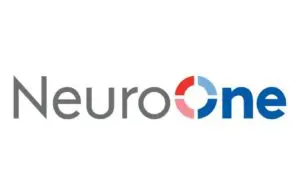 NeuroOne (Nasdaq:NMTC) announced today that it submitted a special FDA 510(k) application for its sEEG electrode.
NeuroOne (Nasdaq:NMTC) announced today that it submitted a special FDA 510(k) application for its sEEG electrode.
Eden Prairie, Minnesota-based NeuroOne’s special submission aims to extend the duration of use for its Evo sEEG electrode from less than 24 hours to less than 30-day use.
The company said in a news release that, according to FDA guidance, a special 510(k) submission is usually reviewed within 30 day of receipt as opposed to the 90 day period for a traditional 510(k) submission.
In May, the FDA stated that it would uphold its decision that the Evo device is “not substantially equivalent for extended use” based on its analysis of the methodology used for exhaustive extraction testing. NeuroOne said the FDA told the company it could submit a new 510(k) with new evidence.
Evo received FDA 510(k) clearance for the temporary (less than 24 hours) recording, monitoring and stimulation of electrical signals at the subsurface level of the brain in September 2021. NeuroOne’s sEEG electrodes, contrary to cortical electrodes, provide a similar function at the subsurface level of the brain while using a much less invasive process as it does not require the removal of the top portion of the patient’s skull.
“Our employees and contractors worked exceptionally hard to expedite the testing and resubmission of our sEEG electrode 510(k) application ahead of our timeline,” NeuroOne CEO Dave Rosa said in the release. “We are excited with the results provided by an accredited independent test facility and look forward to continuing the dialogue with FDA regarding this submission to reach a successful conclusion.”
Last week, NeuroOne received an accelerated $3.5 million milestone payment from Zimmer Biomet for the Evo sEEG based on an agreement made in 2020.